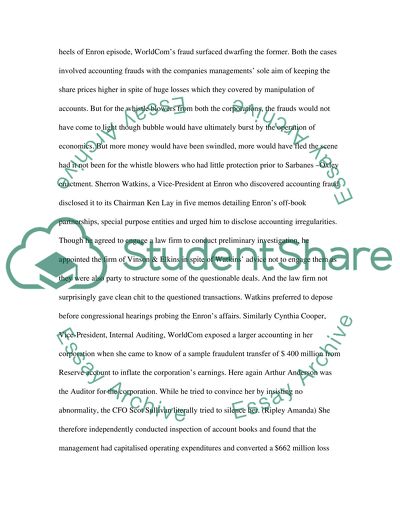Cite this document
(The Failure of Financial Reporting regarding Enron and WorldCom Research Proposal, n.d.)
The Failure of Financial Reporting regarding Enron and WorldCom Research Proposal. Retrieved from https://studentshare.org/finance-accounting/1508583-financial-reporting-case-study
The Failure of Financial Reporting regarding Enron and WorldCom Research Proposal. Retrieved from https://studentshare.org/finance-accounting/1508583-financial-reporting-case-study
(The Failure of Financial Reporting Regarding Enron and WorldCom Research Proposal)
The Failure of Financial Reporting Regarding Enron and WorldCom Research Proposal. https://studentshare.org/finance-accounting/1508583-financial-reporting-case-study.
The Failure of Financial Reporting Regarding Enron and WorldCom Research Proposal. https://studentshare.org/finance-accounting/1508583-financial-reporting-case-study.
“The Failure of Financial Reporting Regarding Enron and WorldCom Research Proposal”, n.d. https://studentshare.org/finance-accounting/1508583-financial-reporting-case-study.


